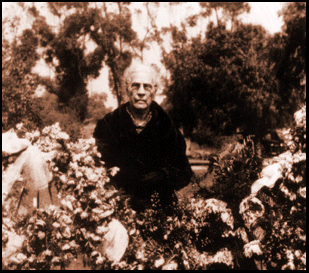
Ellen Hemings Roberts, granddaughter of Thomas Jefferson.
Sally Hemings still has to stay out of the drawing rooms - at least while the "white" folks are around.
Incredible as it may seem, even today, after all the fuss endured in ending slavery and after the happy surprises of DNA, the descendents of the union between Thomas Jefferson and Sally Hemings are neither permitted to be part of the Monticello Association nor allowed to join in its annual reunions.
During a regular meeting of the Association, when the presiding officer was challenged by a cousin to explain a broadening of the ban, one of the other descendents
grabbed the microphone. What he said, according to [the challenger] and three other people who were in the room, was that he had no interest in associating with the Hemings descendants in this life or in death. (The phrase "their kind" was used.) Judging by the amount of applause he is reported to have received, he blurted out what must have been on nearly everyone else's minds.For the complete story, see the more delightful parts of the rebelliously-inclusive Jefferson cousin Lucian K. Truscott IV's account of the family feud in today's NYTimes Op-Ed piece linked at the top. You'll find Walker, the groundskeeper at Monticello, his cousins (the elderly Randolph ladies, Truscott's great-grandmother, Mary Walker Randolph, and great aunts Aggie and Miss Moo), the neat little round windows above the house roof, and the Buick parked on the lawn on a hot July day in 1951.